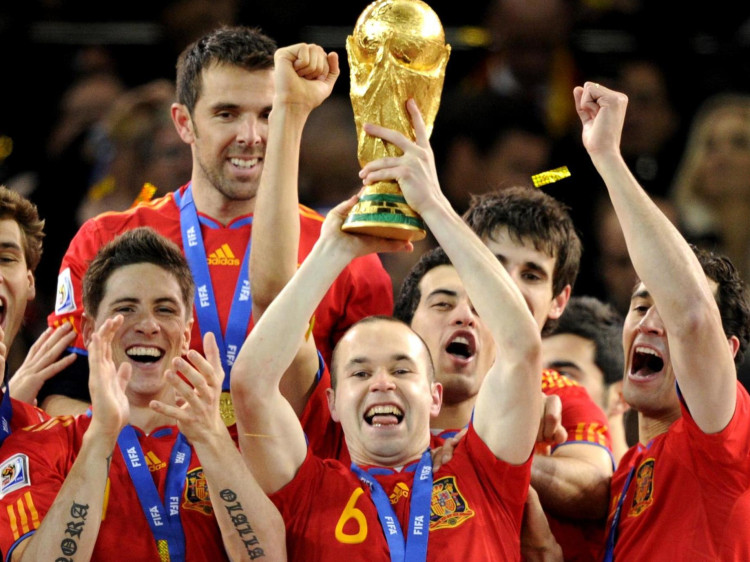
In the history of modern football, few teams have reshaped the way the game is played as decisively as the Spain national football squad did between 2008 and 2012. With their distinctive tactical approach known globally as “tiki-taka,” Spain didn’t just win trophies; they reinvented the philosophy of football. Their innovative passing, meticulous control, and emphasis on possession became a tactical benchmark, influencing football styles around the globe.
In this article, we delve deeply into how Spain’s unique football tactics revolutionized the modern game, highlighting key players, strategic insights, and expert analyses.
The tactical approach known as tiki-taka emphasizes short, precise passes, maintaining possession, patient build-up play, and relentless pressing when not in possession. Although widely associated with FC Barcelona and coach Pep Guardiola, its roots extend deeper into Spanish football culture, influenced notably by legendary Dutch player and coach Johan Cruyff’s time at Barcelona in the 1980s and 90s.
Guardiola later perfected this approach with Barcelona, and the Spanish national team, under coaches Luis Aragones and Vicente del Bosque, adapted and refined tiki-taka, achieving unprecedented international success.
Tiki-taka tactics rely heavily on three core principles:
These tactical principles became hallmark strategies, reshaping global football culture.
Spain’s first significant breakthrough came at Euro 2008 under Luis Aragonés. With a midfield anchored by Xavi Hernández, Andres Iniesta, and Xabi Alonso, Spain demonstrated unmatched control and precision. Defeating Germany 1-0 in the final, Spain’s tactical superiority became unmistakably clear, setting the foundation for future dominance.
The pinnacle of Spain’s tactical brilliance was their victory at the 2010 FIFA World Cup in South Africa. Under Vicente del Bosque, Spain’s tactical system emphasized absolute ball control, careful positional discipline, and tactical patience. Although Spain scored fewer goals, their ability to control games and minimise opponent opportunities was unparalleled.
In the final against the Netherlands, Spain’s tactical patience prevailed in extra-time with Iniesta scoring the decisive goal. This victory validated tiki-taka as more than a style – it became the gold standard for modern football tactics.
In Euro 2012, Spain solidified its tactical legacy. Remarkably, del Bosque opted to play without a traditional striker (‘false nine’), highlighting tactical fluidity. In the final against Italy, Spain’s strategy resulted in a dominant 4-0 victory, reinforcing their tactical prowess and footballing intelligence.
No player symbolised tiki-taka more profoundly than Xavi Hernandez. His extraordinary vision, passing accuracy, and tactical intelligence allowed him to dictate games. Xavi consistently executed over 90% passing accuracy, orchestrating midfield play effortlessly.
Andres Iniesta provided creative brilliance, tactical versatility, and decisive goals. Iniesta’s positioning, movement, and seamless integration with teammates enabled Spain’s tactics to flourish. His goal in the 2010 World Cup final remains iconic, epitomising Spain’s patient, precise style.
Spain’s dominance prompted international teams and clubs globally to adopt or adapt similar possession-based strategies. National teams such as Germany and Belgium, and clubs like Manchester City under Guardiola, have visibly embraced tiki-taka principles, indicating its profound global influence.
Despite its success, Spain’s tactical approach faced criticisms, particularly regarding its perceived lack of directness or goalscoring dynamism. Critics argued that excessive possession could become predictable, leaving teams vulnerable to direct counter-attacking styles, as evidenced in Spain’s struggles post-2012.
Interestingly, the strategic discipline and meticulous planning evident in Spain’s football tactics parallel strategic approaches used elsewhere, such as in online gaming environments. For instance, players who engage with platforms like Casino Purple: detailed expert evaluation appreciate comprehensive, insightful analyses, much like football tacticians value in-depth strategic understanding.
Similarly, detailed strategic insights offered through resources like Expert assessment of Golden Pharaoh Bet Casino features underscore the significance of expertise and thoughtful analysis – principles mirrored in the tactical depth of Spain’s football approach. Both football strategists and gaming enthusiasts share an appreciation for expert-driven, detailed knowledge and meticulous strategy execution.
Modern Spain national teams under coaches like Luis Enrique have begun integrating elements of direct play and rapid transitions. This hybrid approach retains possession principles but incorporates quicker offensive actions, highlighting tactical adaptability as football evolves.
Spanish youth academies continue prioritising tactical understanding and technical proficiency. Young Spanish talents like Pedri, Gavi, and Lamine Yamal symbolise the continued evolution of Spanish tactics, combining classic tiki-taka principles with modern flexibility and dynamism.
Having closely followed Spanish football, I personally appreciate the profound influence Spain’s tactical approach has had on global football philosophy. It’s not just about technical skills but the deep intellectual engagement required to execute such sophisticated strategies successfully.
Football analyst and author Michael Cox, known for his tactical insights, aptly summarises: “Spain’s football tactics between 2008 and 2012 significantly altered the global perception of possession football, demonstrating that tactical intelligence and patience could lead to unprecedented success.”
Spain’s national football squad’s tactical innovation between 2008 and 2012 fundamentally changed football forever. Their dominance through tactical mastery – symbolised by tiki-taka and embodied by exceptional players – set new standards and inspired global football philosophy.
Though adaptations continue as football evolves, Spain’s tactical legacy remains influential. Modern football continues reflecting Spain’s contributions to strategic thinking, emphasizing meticulous preparation, intelligent positioning, and technical excellence. Spain’s approach symbolises the beauty and depth of football, forever redefining how the game is understood, played, and enjoyed.